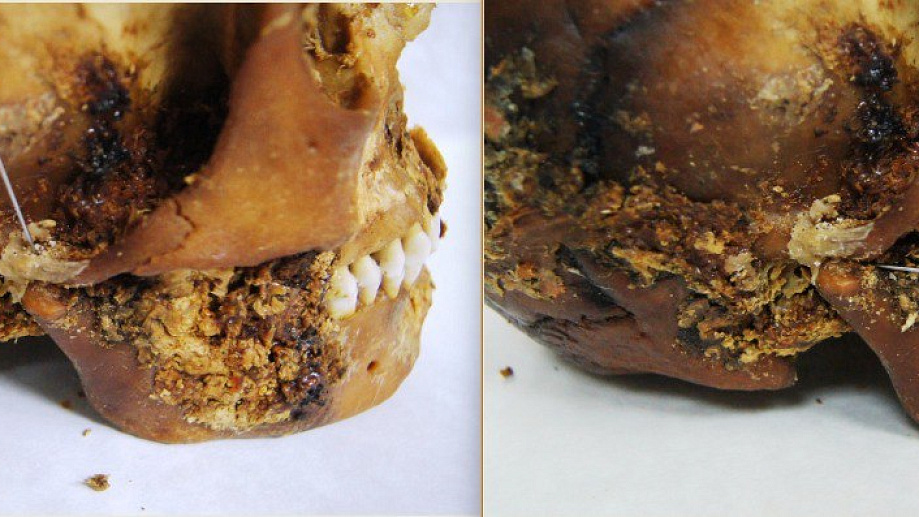
Man Dies From Rare 'Brain-Eating' Amoeba After Swimming in North Carolina Lake

Get the world’s most fascinating discoveries delivered straight to your inbox.
You are now subscribed
Your newsletter sign-up was successful
Want to add more newsletters?

Delivered Daily
Daily Newsletter
Sign up for the latest discoveries, groundbreaking research and fascinating breakthroughs that impact you and the wider world direct to your inbox.

Once a week
Life's Little Mysteries
Feed your curiosity with an exclusive mystery every week, solved with science and delivered direct to your inbox before it's seen anywhere else.

Once a week
How It Works
Sign up to our free science & technology newsletter for your weekly fix of fascinating articles, quick quizzes, amazing images, and more

Delivered daily
Space.com Newsletter
Breaking space news, the latest updates on rocket launches, skywatching events and more!

Once a month
Watch This Space
Sign up to our monthly entertainment newsletter to keep up with all our coverage of the latest sci-fi and space movies, tv shows, games and books.

Once a week
Night Sky This Week
Discover this week's must-see night sky events, moon phases, and stunning astrophotos. Sign up for our skywatching newsletter and explore the universe with us!
Join the club
Get full access to premium articles, exclusive features and a growing list of member rewards.
A man in North Carolina died from a rare "brain-eating" amoeba infection after swimming in a lake at a local water park, according to news reports.
The 59-year-old man became ill after visiting Fantasy Lake Water Park, a man-made lake in Cumberland County, on July 12, according to The New York Times.
The man tested positive for Naegleria fowleri, a single-celled organism that's naturally found in warm freshwater, such as lakes and rivers, the North Carolina Department of Health and Human Services (NCDHH) said in a statement. In the U.S., most infections occur in southern states, particularly during the summer months after it has been hot for prolonged periods, which raises the water temperature, NCDHH said. [5 Key Facts About Brain-Eating Amoeba]
Swallowing Naegleria fowleri in water will not cause an infection. But if water containing this amoeba goes up the nose, the organism can enter the brain and be fatal — the amoeba destroys brain tissue, which results in brain swelling and usually death, according to the Centers for Disease Control and Prevention (CDC).
Still, infections are extremely rare. From 1962 to 2018, there were just 145 cases of Naegleria fowleri reported in the U.S., according to NCDHH. But the illness has a high fatality rate — of the 145 cases, just 4 people survived.
"Our sympathies are with the family and loved ones," epidemiologist Dr. Zack Moore said in the statement. "People should be aware that this organism is present in warm freshwater lakes, rivers and hot springs across North Carolina, so be mindful as you swim or enjoy water sports."
There is no rapid test for Naegleria fowleri in water — identifying the organism can take weeks, according to the CDC. This means that people who go swimming in warm freshwater should assume that there is a low risk of infection, the CDC says.
Get the world’s most fascinating discoveries delivered straight to your inbox.
If you choose to go swimming in warm freshwater, you can try to avoid having water go up your nose by holding your nose closed, using nose clips or keeping your head above water, the CDC says. People can also lower their risk by avoiding swimming in warm freshwater during periods of particularly high water temperature and low water levels, the NCDHH said.
In 2016, an 18-year-old woman from Ohio died from Naegleria fowleri after going white-water rafting at an outdoor recreation center in North Carolina.
- 10 Bizarre Diseases You Can Get Outdoors
- 8 Awful Parasite Infections That Will Make Your Skin Crawl
- 27 Devastating Infectious Diseases
Originally published on Live Science.

Rachael is a Live Science contributor, and was a former channel editor and senior writer for Live Science between 2010 and 2022. She has a master's degree in journalism from New York University's Science, Health and Environmental Reporting Program. She also holds a B.S. in molecular biology and an M.S. in biology from the University of California, San Diego. Her work has appeared in Scienceline, The Washington Post and Scientific American.
 Live Science Plus
Live Science Plus










